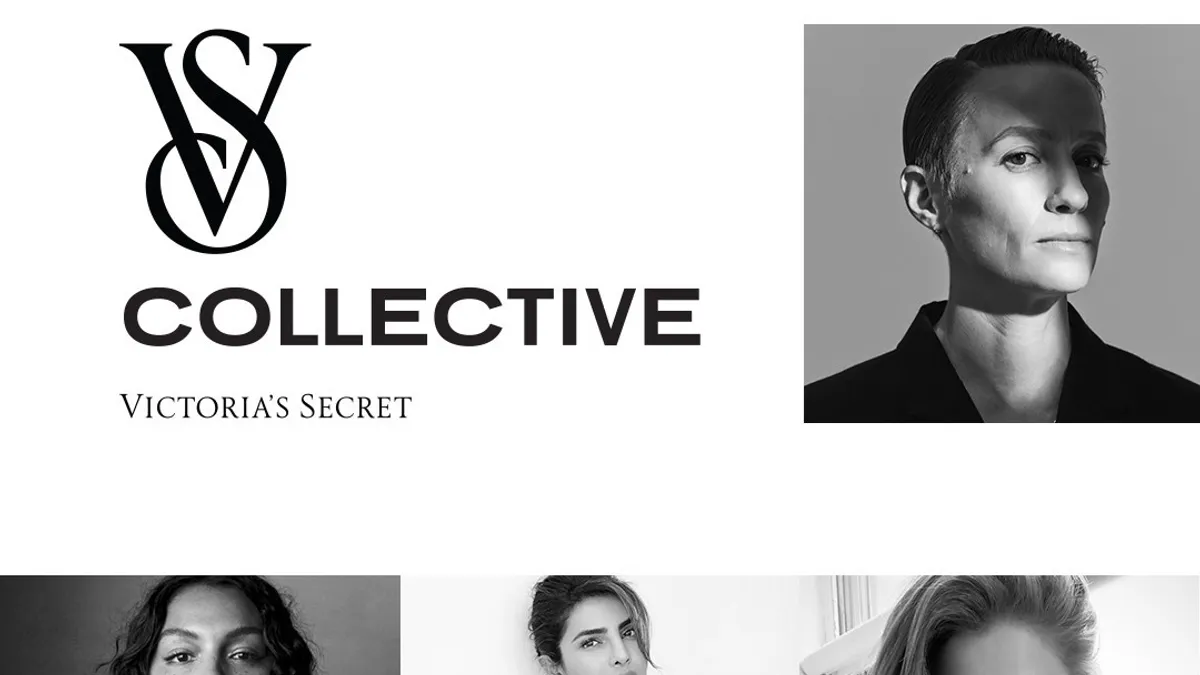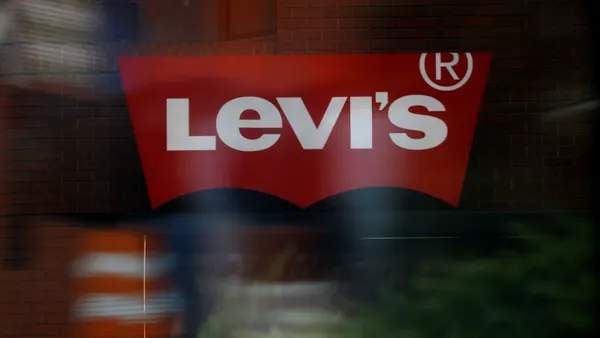Dual investor meetings at L Brands on Monday demonstrated that success is kind of boring, while change can be fascinating, in part because it's risky.
The conglomerate splits into two publicly traded companies next month and will lose its name in the process as Bath & Body Works and Victoria's Secret & Co. go their separate ways. On Monday the company got a jump on things, with each side holding its own investor meeting.
The job for Bath & Body Works executives entailed, mostly, reiterating their past success, boosted further by the pandemic last year with soaps and sanitizers in high demand. For Victoria's Secret's leadership, it was a different story.
That's true in the literal sense. The lingerie brand — which even as its sales and appeal declined has remained a revenue powerhouse — has been forced to abandon its longstanding premise that women dress to please men. Victoria's Secret CEO Martin Waters began the presentation with, as he put it, "the admission that we got it wrong."
"We lost relevance with the modern woman," he said. "And she told us very clearly to change our focus from how people look to how people feel, from being about what he wants to being about her, what she wants, and to support her in her narrative in whatever way that she chooses. So to win her back, we'll celebrate and inspire her, and we'll support her desire to show up however it is that she chooses."
What Victoria's Secret isn't
There may not be a more vivid example of the power of Gen Z than the transformation being attempted at the lingerie brand. The attitude adjustment appears to have been dictated by research into that cohort, whose oldest members are approaching their mid-20s. The company's marketing changes reflect textbook research (from consultancies like Youthsight and others) around this generation's attitudes on body positivity and inclusion, for example.
Waters and Amy Hauk, who leads the company's youth-oriented sub-brand Pink, demonstrated that intention with videos for each line. Pink, already a less sexualized brand, is now also amplifying size and gender inclusivity. At Victoria's Secret, however, the messaging is muddier.
"Welcome," a woman says into the camera in Victoria's Secret's video, featuring an ethnically and physically diverse cast of models. "You're accepted here. No matter what you think you're supposed to do, or look like, or how your body is supposed to be or how you're supposed to talk or how you're supposed to dress or any of it."
That may be a point-blank rejection of what Victoria's Secret once stood for, which was an unattainable body ideal (at least in nature) based on male fantasy. But a real replacement has yet to emerge.
Once it does, expect a reboot of the Victoria's Secret fashion show, Waters said Monday. The brand has saved big marketing dollars in the last two years after the cancelation of its popular but controversial "angels" show, but its marketing value necessitates its return "in the coming years," once the brand figures out how to redefine it, he told investors.
"Our intent is to get back into the fashion show business, of course we should," he said. "It's an outstanding equity and one that we can use to our advantage, we just need to do so in a way that's culturally relevant. And we're not in a hurry to announce when that will be or how that will be. We're gonna figure it out."
The question of what Victoria's Secret is (and not just what it isn't) remains unanswered despite the brand's introduction of its new "VS Collective," a group of influential and powerful women that so far includes soccer star Megan Rapinoe, champion free skier Eileen Gu and actor Priyanka Chopra Jonas, among others.
On Monday, Waters called the VS Collective "a body of women who will help us to be more culturally relevant." However, less than 1% of consumers who engage with Victoria's Secret on social media also engage with Rapinoe, and the brand audience's affinity for Rapinoe is below the national average, according to research from audience insights firm Helixa. Rapinoe's audience is also more politically active than Victoria's Secret's, and she performs best at age brackets above 35, Helixa found.
Where Victoria's Secret isn't
Victoria's Secret may have more soul-searching to do when it comes to marketing, but it's pretty clear on where it wants its stores. Or rather, where it doesn't want its stores.
The company recently permanently closed 241 stores, mostly at malls, with more to come. Waters described "significant opportunity for us to improve and increase our penetration in off-mall locations," stating that there are about 150 vulnerable malls in North America, where there may be further store closures. In three to five years, the company also aims to make half of its sales online. The brand this fall is testing three store revamps, one away from the mall, and next year will test a new store concept in 10 locations, mostly away from malls, which will have more inclusive imagery and mannequins, and digital enabling options like in-store pickup.
All this change, especially given the many unknowns, is tricky for Victoria's Secret, however. The brand no longer has its healthier sibling in its corner to soften the consequences of its own declines, for one thing.
For another, its strengths are also at risk. The cultural shift propelled by Gen Z is forcing what is widely seen as long-awaited change. But what might the particulars mean to existing fans? According to B. Riley analysts led by Susan Anderson, Victoria's Secret and Pink enjoy an 87% net promoter score and have 27 million active customers in North America, while Victoria's Secret alone is the number one lingerie brand, with 20% market share in North America.
Meanwhile, competition in lingerie has only intensified, in part thanks to the entry of several DTC brands without Victoria's Secret's baggage, Waters said.
"The customer did not give up on us at all, the customer has always loved Victoria's Secret," he said. "Once we sorted ourselves out, you know, happily, the customer has come back strongly. So, yes, we have dominant market share positions. At the same time, we are not at all complacent about competition."

















